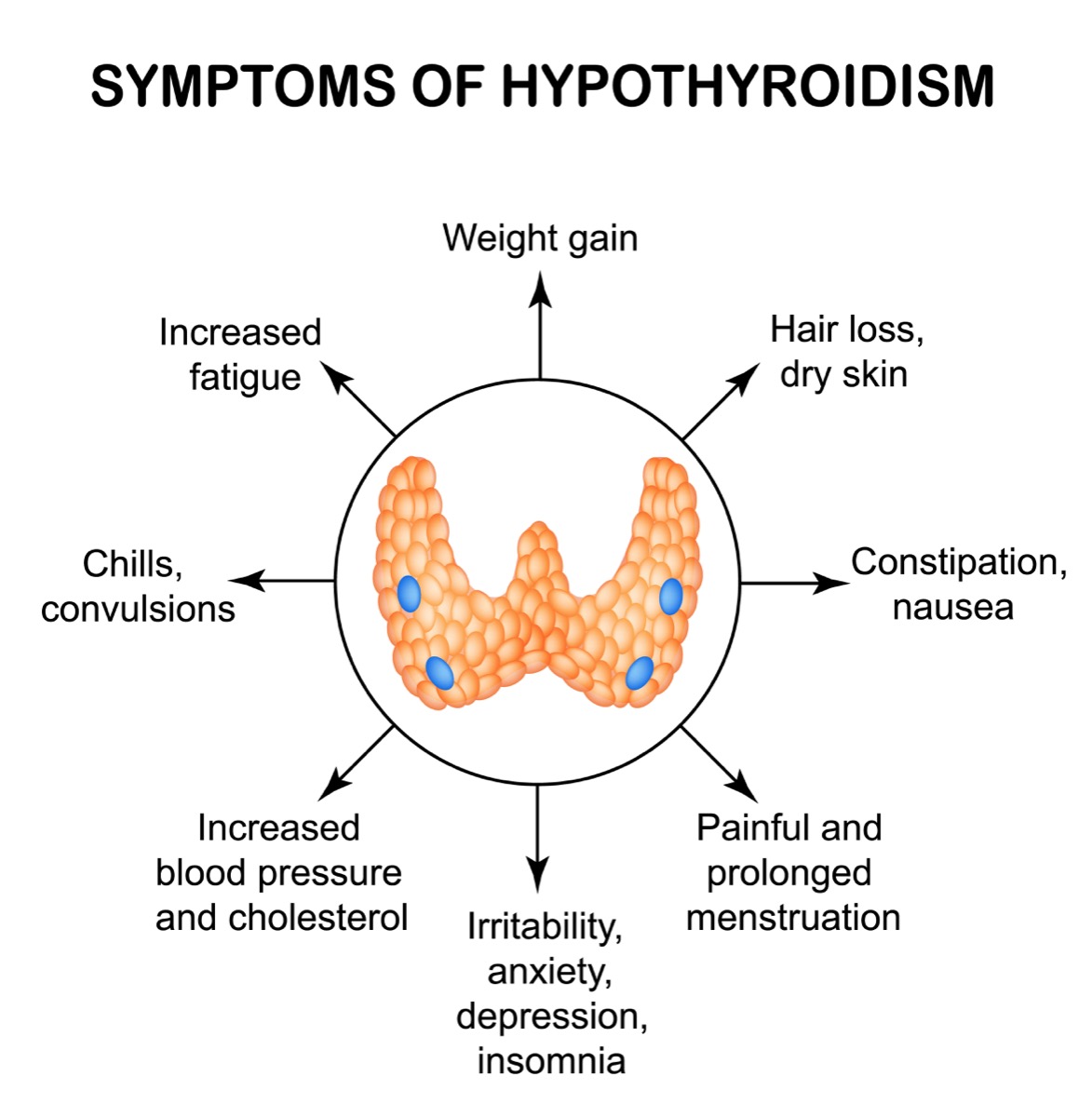Hypothyroidism

The exact opposite of hyperthyroidism, hypothyroidism is when the thyroid is not producing enough T3 and T4 hormones to maintain homeostasis within the body. Hypothyroidism is more common in women. There are a number of reasons why someone would develop hypothyroidism, including medications for bipolar disorder and diabetes; damaged or missing pieces of the thyroid glance, other thyroid conditions like Hashimoto’s thyroiditis; too little intake of iodine; and pituitary gland conditions and damage. Other autoimmune disorders have also been responsible for hypothyroidism.
Symptoms of hypothyroidism vary from person to person, but generally these include:
• Feeling cold
• Unintended and unexplained weight gain
• Dry skin
• Depression
• Constipation
• Fatigue and low energy levels
• Forgetfulness and brain fog
• Development of goiter
As with hyperthyroidism, doctors will order blood tests to determine the level of thyroid hormones in the blood. While there is no cure for hypothyroidism, the symptoms can be treated with hormone replacement therapies.
More from Things Health
-
Thyroid Cancer
Each type requires a different kind of prognosis and treatment. This is the most typical type of thyroid cancer, it can make up about 80%…
-
The Common Cold
Common cold, also known simply as a cold, is a viral infectious disease of the upper respiratory tract that primarily affects the nose. The throat,…
-
The Most Common Causes of Atrial Fibrillation
Atrial fibrillation, Afib, is an abnormal heart rhythm, also known as an arrhythmia. Atrial fibrillation is described as rapid and irregular beating of the atrium,…
-
Supplements For Thyroid Health
It's never too soon to think of nutritional supplements for thyroid health. There are various factors that may endanger the wellness of your thyroid, and…
-
The 8 Most Common (And Terrible) Sleep Disorders
After a long day, there is nothing better than getting into bed for a good night’s rest. However, according to the most recent Sleep Index…






